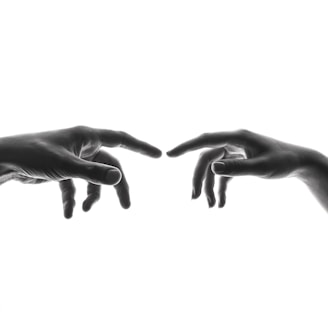Alien Hand Syndrome: When Your Own Hand Acts Against You
Imagine waking up one day to find that your own hand seems to have developed a mind of its own, performing actions without your consent. This isn't a scene from a science fiction movie but a real neurological condition known as Alien Hand Syndrome (AHS).
NEUROLOGY
Rishwin A R
2/6/20252 min read


What is Alien Hand Syndrome?
Alien Hand Syndrome is a rare neurological disorder where one hand functions involuntarily, seemingly acting on its own without the individual's conscious control. Individuals with AHS may find their hand performing tasks such as grasping objects, gesturing, or even interfering with the actions of the other hand. This phenomenon often leads to a profound sense of estrangement from the affected limb, as if it belongs to someone else.
Causes of Alien Hand Syndrome
AHS is typically associated with specific brain injuries or conditions that disrupt normal brain function. Common causes include:
Brain Surgery: Procedures like corpus callosotomy, performed to treat severe epilepsy, can lead to AHS by severing the connection between the brain's hemispheres.
Stroke: Damage to areas such as the corpus callosum, frontal, or parietal lobes can result in the syndrome.
Neurodegenerative Diseases: Conditions like Alzheimer's disease or corticobasal degeneration have been linked to AHS.
Symptoms and Manifestations
The hallmark of AHS is the involuntary yet purposeful movement of the affected hand. Symptoms can vary depending on the brain region involved:
Frontal Lobe Damage: May lead to involuntary grasping or groping movements.
Corpus Callosum Damage: Can cause the affected hand to act in opposition to the other, leading to intermanual conflict.
Parietal Lobe Damage: Might result in the hand performing complex movements without the individual's awareness.
Individuals often describe a sense of estrangement from the affected hand, feeling as though it doesn't belong to them.
Diagnosis
Diagnosing AHS involves a thorough neurological examination and detailed patient history. Imaging studies like MRI or CT scans can help identify lesions or abnormalities in the brain regions associated with the syndrome. It's crucial to differentiate AHS from other movement disorders or psychiatric conditions to ensure appropriate management.
Treatment and Management
Currently, there is no definitive cure for Alien Hand Syndrome. Management strategies focus on alleviating symptoms and may include:
Behavioral Techniques: Patients can be trained to keep the affected hand occupied with simple tasks to prevent involuntary movements.
Pharmacotherapy: Medications such as benzodiazepines or antipsychotics have been used in some cases to reduce symptoms.
Physical Therapy: Incorporating the affected hand into purposeful activities can help in regaining some control.
Each treatment plan should be tailored to the individual's specific symptoms and underlying causes.
Living with Alien Hand Syndrome
Coping with AHS can be challenging, as the involuntary movements can interfere with daily activities and lead to social embarrassment. Support from healthcare professionals, along with counseling, can assist individuals in managing the psychological impact of the condition.
Syndromes.xyz
Explore medical syndromes and their details here.
For Educational purposes only
The information on this site is not in any way, replacement for professional advice. Always consult your physician regarding personal queries
Connect
Support
syndromesxyz@gmail.com
© 2024. All rights reserved.
